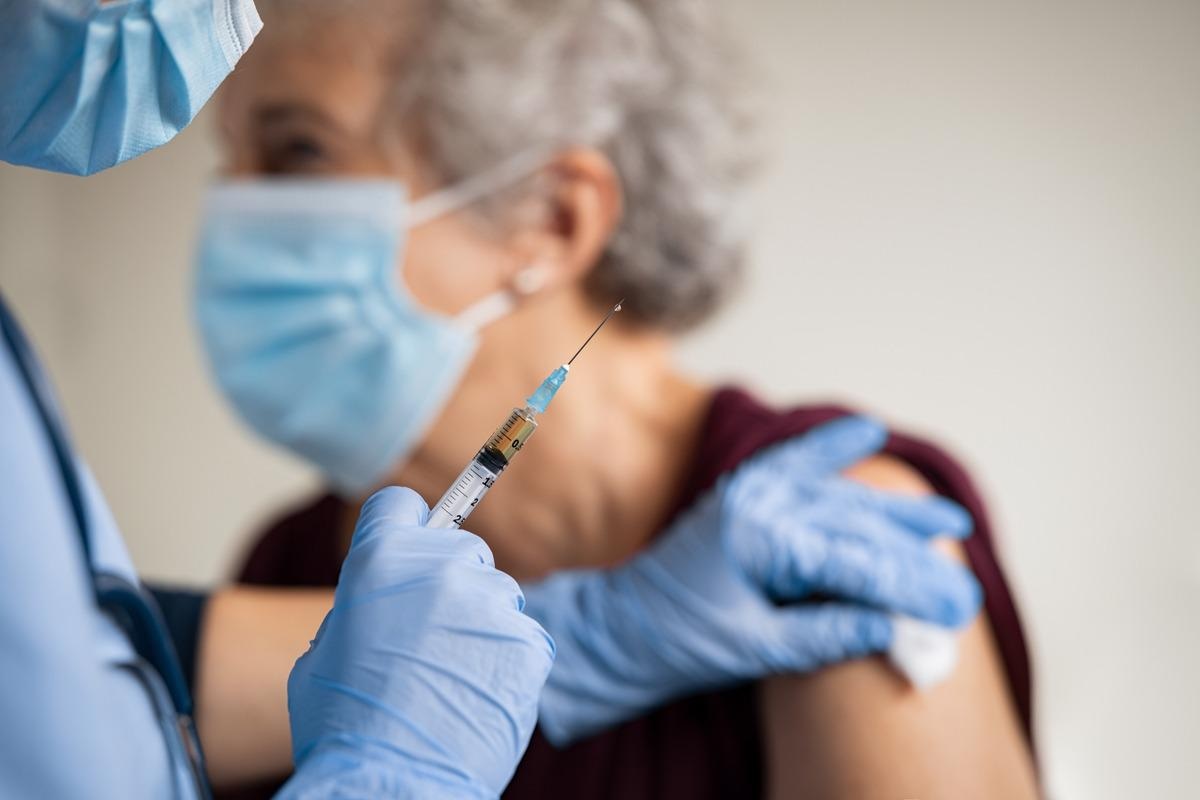Researchers assessed the severe acute respiratory syndrome coronavirus 2 (SARS-CoV-2)-specific humoral and cellular immune responses induced by the second and third doses of the BNT162b2 coronavirus disease 2019 (COVID-19) messenger ribonucleic acid (mRNA)-based vaccine in the elderly.
The results of the study are currently available on the medRxiv* preprint server.
 Study: Differential durability of humoral and T cell immunity after two and three BNT162b2 vaccinations in adults aged >80 years. Image Credit: Rido/Shutterstock
Study: Differential durability of humoral and T cell immunity after two and three BNT162b2 vaccinations in adults aged >80 years. Image Credit: Rido/Shutterstock
The preferred technique for maintaining protection against COVID-19 is a third immunization using an mRNA-based vaccine, often called a booster vaccination, particularly in the light of the recent emergence of highly mutated SARS-CoV-2 Omicron variant. Nevertheless, the considerable decline of SARS-CoV-2-specific cellular and humoral immunity following six months of the second COVID-19 vaccination, and the high prevalence of breakthrough infections after the second vaccination, raised concerns about the longevity of immunity conferred even by the third vaccination against SARS-CoV-2, especially in high-risk populations, such as senior adults.

 This news article was a review of a preliminary scientific report that had not undergone peer-review at the time of publication. Since its initial publication, the scientific report has now been peer reviewed and accepted for publication in a Scientific Journal. Links to the preliminary and peer-reviewed reports are available in the Sources section at the bottom of this article. View Sources
This news article was a review of a preliminary scientific report that had not undergone peer-review at the time of publication. Since its initial publication, the scientific report has now been peer reviewed and accepted for publication in a Scientific Journal. Links to the preliminary and peer-reviewed reports are available in the Sources section at the bottom of this article. View Sources
About the study
In the present study, the researchers evaluated the SARS-CoV-2 spike (S)-specific T cell responses and serum antibody levels in the blood following the second and third COVID-19 mRNA-based BNT162b2 vaccinations in more than 50 participants aged above 80 years, who were at risk of immune senescence and a severe form of COVID-19, in Germany from March 2021 to January 2022.
The participants were enrolled in the study after submitting an informed consent form. The team evaluated the humoral and cellular immune responses stimulated by the second and third BNT162b2 vaccination in the study cohort at weeks zero, three, five, 24, 26, and 40, respectively, using enzyme-linked immunosorbent assay (ELISA).
Findings
The results indicate that all older adults exhibited robust humoral responses following the third dose of BNT162b2 vaccination that was higher and waned more slowly than the second vaccination.
In detail, the SARS-CoV-2 S1-specific immunoglobulin G (IgG) concentrations in the blood following two weeks of the third vaccine dose were slightly higher than that after the second vaccination. In contrast, the functionally relevant SARS-CoV-2-neutralizing and receptor-binding domain (RBD)-specific antibody titers were significantly higher following the third BNT162b2 vaccination than the second, indicating the improved antibody synthesis and affinity maturation following the third vaccination.
Further, the reductions in SARS-CoV-2 RBD- and S1-specific IgG concentrations following the third dose of BNT162b2 were slower than the second, and it only declined after the 40th week of the third dose, whereas it decreased after the 24th week of the second dose. Thus, suggesting a third dose of the BNT162b2 vaccination yielded enhanced IgG quantity and quality. However, the SARS-CoV-2 S-specific CD4 T cell responses induced by the third dose of the BNT162b2 vaccine, and its waning, were similar to the second dose in older adults.
Further, the quantified cytoplasmic expression of the effector cytokine interferon γ (IFNγ) demonstrated that functional enhancement of SARS-CoV-2 S-specific T cells was present up to the second BNT162b2 vaccination but was not enhanced further by the third vaccination. The SARS-CoV-2-recovered elderly patients exhibited high levels of cytoplasmic IFNγ in S-specific CD4 T cells compared to the third vaccination. Hence, even a third BNT162b2 vaccination failed to stimulate sustainably increased levels of S-specific T cell responses with the same functional quality as those induced by the natural SARS-CoV-2 infection.
Conclusion
The study findings show that while the third dose of the BNT162b2 vaccine induces a substantially higher level of humoral immunity for at least three months, it failed to enhance the SARS-CoV-2 S-specific T cell responses in senior adults. Furthermore, since the BNT162b2-associated protection against the SARS-CoV-2 Omicron variant depends on the T cell response rather than the antibody body responses, as it demonstrates significant antibody escape, the present findings relate to the longevity of protection conferred by the third dose of BNT162b2 vaccine against Omicron in the elderly population.
The study indicates the significance of further immunizations with vaccines enhancing the SARS-CoV-2-specific T cell reactivity and targeting the variants of concerns (VOCs) to adequately protect the elderly population from COVID-19, especially from the heavily mutated variants, such as Omicron, and those that may potentially emerge in the future.

 This news article was a review of a preliminary scientific report that had not undergone peer-review at the time of publication. Since its initial publication, the scientific report has now been peer reviewed and accepted for publication in a Scientific Journal. Links to the preliminary and peer-reviewed reports are available in the Sources section at the bottom of this article. View Sources
This news article was a review of a preliminary scientific report that had not undergone peer-review at the time of publication. Since its initial publication, the scientific report has now been peer reviewed and accepted for publication in a Scientific Journal. Links to the preliminary and peer-reviewed reports are available in the Sources section at the bottom of this article. View Sources